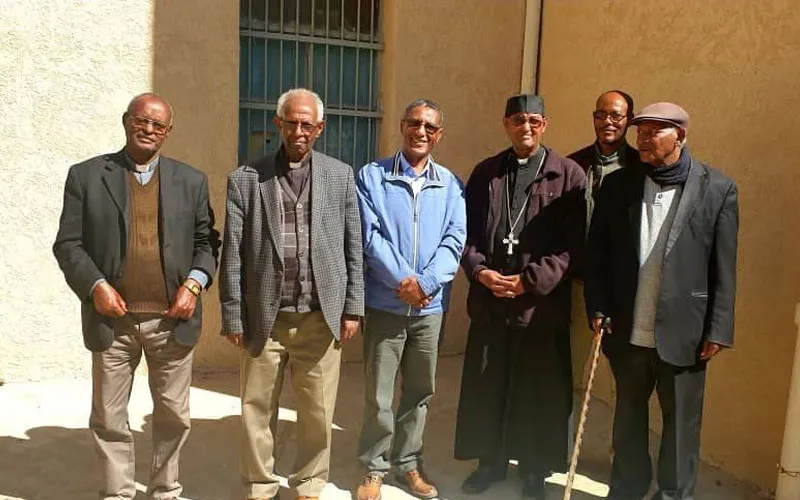Tigray, 24 January, 2021 / 1:13 pm (ACI Africa).
Members of the delegation by the Catholic Bishops’ Conference of Ethiopia (CBCE) have described their recent solidarity visit to the troubled region of Tigray within the territory covered by Ethiopia’s Eparchy of Adigrat as “important and eye-opening.”
In their Thursday, January 21 report, the five-member delegation that was commissioned by the head of the Catholic Church in Ethiopia, Berhaneyesus Cardinal Souraphiel, says the visit was meant to “physically see the Catholic Bishop of the Eparchy of Adigrat and understand the actual humanitarian situation and need of the people of Tigray.”
“It was an important and eye-opening visit to see and understand different realities and consequences,” the delegation says in reference to the 12-14 January solidarity visit.
The members of the delegation included CBCE Secretary General, Fr. Teshome Fikre, the Executive Director of Ethiopian Catholic Church Social Development Commission (ECC-SDCO), Bekele Moges, and three representatives from the Catholic Relief Services (CRS).
The visit aimed at meeting “the relevant interim regional government officials and discuss the humanitarian corridor and interventions,” the members of the delegation say in the 11-page report shared with ACI Africa.








